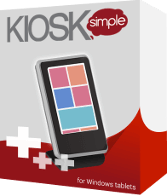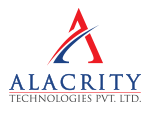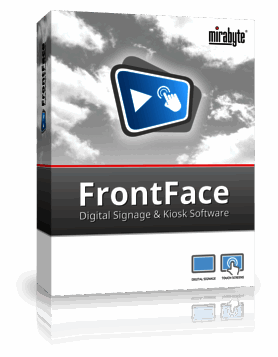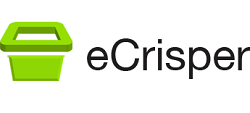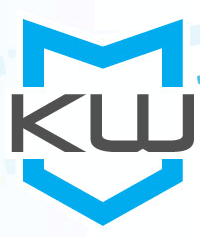What Is Kiosk Software?
Kiosk software is a type of computer program or application that runs on a kiosk, which is a self-service gadget commonly found in public places such as retail stores, hotels, airports, and healthcare institutions. This software controls the user interface, the kiosk's physical components, and the content presented on the screen. One of the most important advantages of kiosk software is its ability to provide a user-friendly interface that allows users to interact with the kiosk and complete operations autonomously, without the need for assistance from a staff member.
This can involve things like making purchases, checking in for appointments, and getting information. Security is also an important part of kiosk software. It often contains features like user identification, data encryption, and access control methods to protect user data privacy and security. In addition to managing the user interface and security, kiosk software allows businesses to personalize the material presented on the kiosks.
This may include promotional movies, product information, maps, and other pertinent material to engage and inform clients. Furthermore, kiosk software frequently includes comprehensive reporting and analytics features, enabling organizations to monitor and analyze consumer interactions, usage patterns, and other key indicators. This information can be utilized to make sound judgments about improving the kiosk experience and overall business operations.
Overall, investing in kiosk software can provide various benefits to organizations, including lower staffing expenses, increased customer happiness, and greater productivity. When contemplating purchasing kiosk software, it is critical to assess its capabilities, adaptability, and compatibility with various hardware devices to ensure that it matches your specific company requirements. With the proper kiosk software, you can improve customer service and maximize ROI.
What Are The Recent Trends In Kiosk Software?
Kiosk software has advanced significantly in recent years, owing to the increased need for self-service solutions across a wide range of businesses. As organizations attempt to improve client experiences and operations, the kiosk software market is predicted to grow, reaching $1.1 billion by 2024. To remain competitive, buyers must keep up with the latest advancements in kiosk software.
Consider the following recent developments:
1. Personalization And Customization: As omnichannel and personalized experiences have grown in popularity, kiosk software has evolved to enable businesses to tailor their kiosk interfaces to specific client needs. This can include language options, targeted marketing, and personalized recommendations, resulting in a more engaging and relevant user experience.
2. Emphasis On User Experience: Kiosk software suppliers are increasingly focusing user experience by providing intuitive and user-friendly interface designs. This includes features like as touchless or gesture-based interactions, as well as simpler navigation and design, which allow users to operate the kiosk without assistance.
3. Integration With Mobile And IoT: As mobile devices and the Internet of Things (IoT) have become more popular, kiosk software has evolved to incorporate these technologies. This provides clients with a seamless experience, as they can commence transactions on their mobile devices and continue at the kiosk, or they can use their IoT devices to get information or complete tasks via the kiosk.
4. Data Analytics And Reporting: Kiosk software today includes comprehensive data collection and analytics features, giving organizations important insights into customer behavior, preferences, and engagement. This information can be utilized to improve kiosk placement, content, and offerings, as well as to develop customized marketing campaigns.
5. Increased Security Mechanisms: As worries about data privacy and security rise, kiosk software has included additional security mechanisms to secure user information and transactions. This could incorporate biometric authentication, encrypted communication, and remote monitoring and management capabilities.
Benefits Of Using Kiosk Software
Kiosk software has transformed how businesses connect with their customers. Kiosks use innovative technology to provide users with a convenient and engaging platform for accessing information and doing transactions. But what are the advantages of adopting kiosk software?
We'll look at the benefits of using kiosk software in your organization.
1. Improved Customer Service: One of the primary advantages of adopting kiosk software is better customer service. Customers may simply navigate and discover information via kiosks, eliminating the need to wait in line or rely on staff. This saves time for both the consumer and the company, improving the overall efficiency and convenience.
2. Cost-Effective: Business owners can also save money by implementing kiosk software. Kiosks can assist cut labor expenses by automating tasks and reducing the demand for human personnel. Furthermore, eliminating paper-based operations allows organizations to save on printing and stationery costs.
3. Increased Efficiency: Kiosks are intended to streamline operations and improve efficiency. Customers can use self-service tools to execute transactions and get information quickly and without delay. This can also assist reduce client wait times, resulting in a better overall experience and improved customer satisfaction.
4. Customizable And Flexible: Kiosk software is highly customizable and flexible, making it ideal for a wide range of industries and enterprises. Kiosks can be customized to match the individual demands and objectives of any industry, including retail, hospitality, and healthcare. This versatility makes kiosk software an excellent investment for any business.
5. Collect Client Data: Another benefit of employing kiosk software is the chance to get vital client information. Businesses can utilize surveys and feedback forms to learn about client behavior and preferences. This data can then be used to improve products and services, resulting in greater customer satisfaction and loyalty.
6. Improve Marketing Efforts: Kiosks can also be used as an effective marketing tool for businesses. Kiosks provide a direct and engaging approach to communicate with customers, as they can display adverts and promotions. This can assist boost brand awareness and revenue.
Important Factors To Consider While Purchasing Kiosk Software?
When choosing kiosk software, several essential elements should be considered to ensure the best fit for your company's needs. From functionality to security, several factors might determine the success of your kiosk deployment.
To assist you make the best decision possible, we've developed a list of key aspects to consider when selecting kiosk software.
1. Purpose And Features: The first and most important thing to consider is the purpose of your kiosk and the exact features you need. Are you seeking for a basic self-service check-in kiosk or a completely customized interactive kiosk? Make a list of the critical features and functionalities you require and prioritize them according to your business requirements.
2. User Interface: The user interface for your kiosk software is critical to its success. It should be intuitive, simple to use, and visually beautiful. Consider the design, layout, and accessibility options for various user categories, including people with disabilities. A well-designed user interface improves the overall user experience and boosts consumer satisfaction.
3. Compatibility And Integration: Before making a purchase, make sure that the kiosk software works with your current hardware and any other software systems you use. This will prevent future technical issues and compatibility conflicts. Consider whether the software integrates with third-party systems or has an API for customization.
4. Security And Data Protection: Kiosks handle sensitive client information, thus security should be a concern. Look for kiosk software that includes security measures like encryption, keycard access, and remote monitoring. It should also follow data privacy standards to protect your customers' information and uphold your company's reputation.
5. Scalability And Flexibility: Consider how scalable and flexible the kiosk software is. Your company may expand in the future, and you do not want to be constrained by software that cannot adapt to your evolving requirements. Look for a system that can handle increased traffic while also being easily customizable or modified to include new features and functionalities.
6. Technical Support: Kiosk software requires regular maintenance and technical support to ensure its continuous operation. Before making a purchase, consider the customer support provided by the software supplier. Consider the response time, availability, and support channels (phone, email, and live chat). It is best to find a service that offers 24-hour help to address any difficulties as soon as they emerge.
7. Cost And ROI: Finally, analyze the kiosk software's cost as well as its return on investment (ROI). While it is critical to select a cost-effective solution, do not sacrifice vital features and functionality for a reduced price. A well-designed and effective kiosk software can save you time and money in the long term, making it an excellent investment.
What Are The Key Features To Look For In Kiosk Software?
Kiosk software is a crucial tool for organizations that use self-service kiosks. It helps to streamline operations, improve customer experience, and boost efficiency. However, with so many options on the market, it can be difficult to select the best kiosk software for your business.
To help you make an informed decision, here are some crucial characteristics to look for in kiosk software.
1. User-Friendly interface: The kiosk software's user interface should be considered first. Both customers and workers should find it intuitive and easy to navigate. A cluttered or confused design can frustrate customers and have a negative influence on their overall experience.
2. Customization Options: There is no one-size-fits-all solution for kiosk software. Your company may have specific requirements, and the software should allow for flexibility to meet those demands. Look for software with configurable layouts, designs, and branding possibilities.
3. Remote Management: Managing several kiosks might be difficult if done manually. Choose kiosk software that supports remote management functions such as content updates, monitoring, and troubleshooting. It will save time and resources, particularly for companies that have a big number of kiosks.
4. Data Analytics: Data is essential for making sound business decisions. Look for kiosk software with robust data analytics and reporting capabilities. This will allow you to gain insights about customer behavior, usage patterns, and general kiosk performance.
5. Security: Kiosks frequently handle sensitive data, such as payment information. As a result, security should be the first consideration while selecting kiosk software. Look for software that includes security features such as encryption, user authentication, and remote lockdown.
6. Compatibility: Before making a purchase, make sure the kiosk software works with your kiosk hardware and operating system. Failure to do so may cause compatibility concerns and significant costs.
7. Offline Capabilities: Despite having a reliable internet connection, kiosks may have intermittent disconnections. In such instances, it is critical that the kiosk software has offline features, which allow it to continue operating and synchronizing data once connectivity is restored.
8. Customer Support: Technical issues can develop at any time, so having reliable customer assistance is critical. Look for kiosk software vendors who provide 24-hour customer support and help to ensure smooth operations and prompt resolution of any issues.
Why Do Businesses Need Kiosk Software?
. Kiosk software is an indispensable tool for modern organizations seeking to improve customer service, operational efficiency, and income. This software solution, designed exclusively for kiosk machines, includes a variety of features and functionalities that can help to optimize processes, improve the user experience, and streamline operations.
Here are the main reasons why firms need kiosk software:
1. Increased Customer Engagement: Kiosk software enables businesses to engage with their customers in a more engaging and personalized way. Customers can use self-service tools to access information, place orders, and make payments when it is convenient for them. This not only reduces wait times but also gives clients control over their experience.
2. Improved Operational Efficiency: Kiosks equipped with the appropriate software can dramatically increase a company's efficiency. They can automate operations like ordering, payment, check-ins, and more, decreasing employee workload and allowing them to focus on more vital responsibilities. This results in faster service, quicker transactions, and, ultimately, more productivity.
3. Cost-Effective: Using kiosk software can be a cost-effective alternative for organizations. It removes the need to hire additional employees to undertake customer support activities and can reduce printing and paper expenditures. Businesses that make a one-time investment in software can receive significant long-term cost reductions.
4. Data Collection And Analysis: Software-enabled kiosks can collect vital user interaction and transaction data. This data can give firms with insights and trends that help them make informed decisions about product offerings, pricing, and marketing strategies. They can also track client behavior and preferences, allowing businesses to provide a more tailored experience.
5. Streamlined Operations: Kiosk software can improve efficiency by integrating with other systems like inventory management, accounting, and CRM. This allows for a smooth flow of information and reduces the need for manual data entry, lowering the risk of errors and enhancing efficiency.
6. Customization And Branding: Kiosk software enables businesses to personalize the user interface, design, and branding of their kiosks. This contributes to a consistent brand image and a more pleasant user experience. Businesses can use customization options to personalize the kiosk to their individual needs and stand out from the competition.
How Much Time Is Required To Implement Kiosk Software?
The time required to develop kiosk software varies based on a number of factors, including the software's complexity, the scale of the deployment, and the availability of resources. On average, completely implementing kiosk software might take anything from a few weeks to a few months. The initial setup and installation of kiosk software can usually be accomplished in a few days, depending on the number of kiosks deployed.
This includes configuring the hardware, connecting to the internet, and installing the software. The next step is to tailor the program to your individual needs and requirements. This may include modifying the user interface, adding apps or services, and implementing security measures. Depending on the intricacy of your kiosk project, this could take anything from a few days to many weeks.
Following the initial setup and configuration, the testing phase commences. This includes ensuring that all features and functions perform properly and resolving any issues or defects that may develop. The time of this phase varies according to the number of kiosks and the intricacy of your setup. The final step is to install the kiosk software to your preferred locations. This can take anything from a few days to several weeks, depending on the quantity of kiosks and the logistics of installation.
What Is The Level Of Customization Available In Kiosk Software?
When it comes to kiosk software, personalization is an important factor to consider. The level of customisation possible in kiosk software has a significant impact on both the user experience and the overall success of a kiosk deployment. Kiosk software typically provides a variety of customization options to meet the individual demands of a business. These possibilities include cosmetic, functional, and branding modification.
Visual customisation allows businesses to modify the kiosk's user interface to match their brand and aesthetic preferences. This can include personalized color schemes, logos, and layouts. Some kiosk software may also support the display of personalized content or adverts on the kiosk screen. Functionality customisation is the ability to add or remove features and capabilities to meet the demands of a business.
For example, a retail company may choose to add a barcode scanner in its kiosk, whereas a healthcare center may prefer a virtual check-in option. Kiosk software often has a number of add-on modules to accommodate different sectors and use cases. Another critical aspect of customization is branding, which entails embedding a company's branding aspects into the kiosk software. This may include imprinting the kiosk with a company's logo, color scheme, and branding messages.
This not only contributes to a consistent marketing plan, but also improves brand awareness and loyalty. It is important to note that the level of customisation offered in kiosk software might vary based on the supplier and the pricing plan. Buyers must examine their individual customization requirements before selecting kiosk software that provides the requisite level of customization. Investing in flexible and adjustable kiosk software can help a business in the long term by allowing for greater personalization and better defining the kiosk's purpose.
Which Industries Can Benefit The Most From Kiosk Software?
Kiosk software is a highly adaptable solution that provides numerous advantages to businesses across multiple industries. Kiosk software may streamline operations, improve customer experience, and ultimately increase productivity and income in a variety of industries, including retail, healthcare, education, and transportation.
The following sectors can gain the most from deploying kiosk software:
1. Retail: Kiosk software revolutionized the retail industry. Customers may browse product information, check inventory, and even make purchases right from the kiosk. This not only minimizes wait times and improves the client experience, but also allows employees to focus on other responsibilities. Kiosks can also be utilized for targeted marketing and promotions, which boost sales and brand exposure.
2. Healthcare: In the healthcare industry, timing and accuracy are critical considerations. Kiosk software can help with both. Patients can utilize self-service kiosks to check in for appointments, update personal information, and pay bills. This reduces wait times and errors, resulting in higher overall patient satisfaction. Kiosks can also be used for patient education, delivering important information about diseases and treatments.
3. Education: Kiosks are growing more common at educational institutions, ranging from universities to elementary schools. They can be used to register students, pick courses, and access academic materials. Kiosks can also function as self-service library kiosks, allowing students to check out books at their leisure. This not only simplifies operations, but also teaches pupils important technological skills.
4. Transportation: Kiosk software can be quite useful at airports, rail stations, and bus terminals. Self-service kiosks can expedite the check-in process and shorten lineups, enhancing the overall travel experience. Kiosks can also be utilized to provide real-time flight or rail information, decreasing the need for workers to answer the same inquiries. Furthermore, kiosks may be utilized to purchase tickets, allowing customers to better organize their trips.
5. Hospitality: Kiosk software can transform the hospitality business by providing guests with a simple self-service option. Hotels can employ kiosks to check in and out, lowering wait times at the front desk. Kiosks can also be used to obtain room service, plan events, or make restaurant reservations. This frees up staff to focus on other responsibilities, increasing productivity and customer satisfaction.
Conclusion
Finally, selecting the correct kiosk software for your business is an important decision that can have a significant impact on your operations and overall performance. By carefully evaluating the important criteria described in this buyer's guide, such as functionality, customization, security, and support, you can make an informed and effective decision that suits your individual requirements and objectives.
Remember to thoroughly investigate and assess various software solutions, taking into account your budget and integration needs. Additionally, don't be hesitant to contact vendors for demo trials and ask pertinent questions to verify you're making the greatest option for your company. Kiosk software can help improve customer experience, efficiency, and overall productivity. With the appropriate software in place, you can grow your business and stay ahead of the competition. Take the time to carefully consider your options and invest in credible and dependable kiosk software that will benefit you in the long run.

